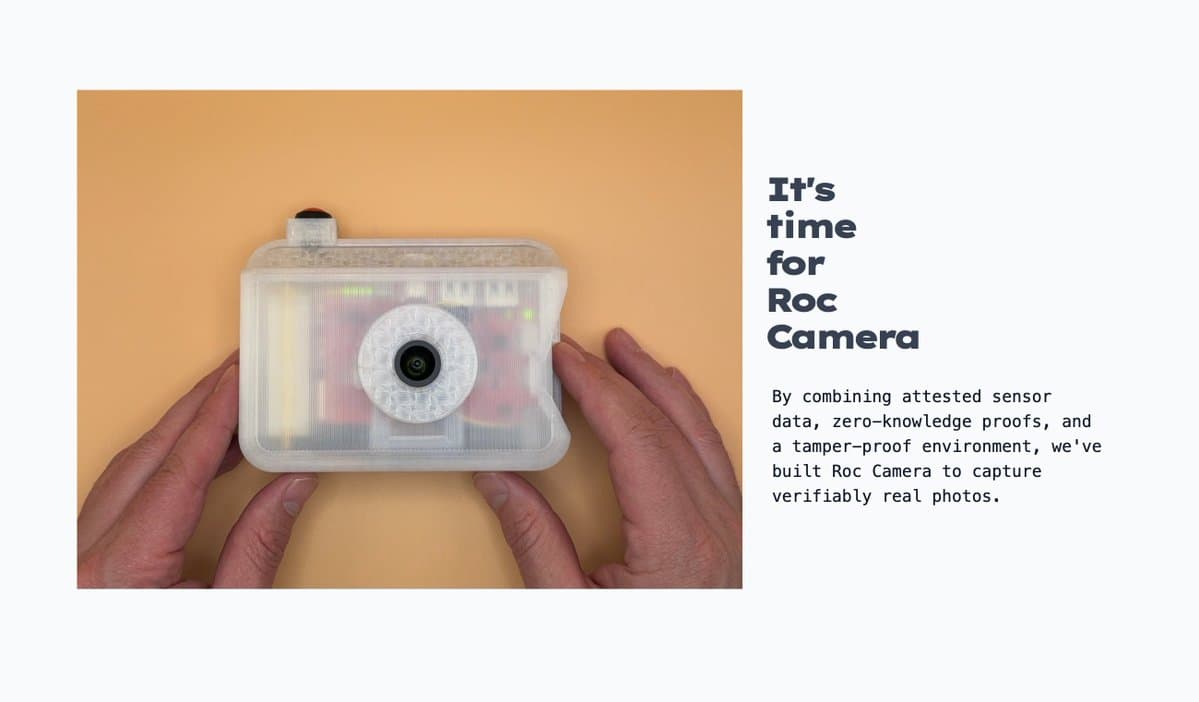ZK Camera 'Roc Camera' Rises to 2nd Most Popular on Hacker News, Addresses AI Deepfake Fears

The 'Roc Camera,' a device leveraging Zero-Knowledge Proofs (ZKPs) to verify image authenticity, recently became the second most popular story on Hacker News within 24 hours, signaling a growing interest in provable technologies. Venture capitalist Uma Roy highlighted its rapid ascent, stating in a tweet, > "btw, @roc_camera (a ZK camera) was the 2nd most popular story on HN in the past 24 hours. I've had 5 normie friends message me about it today. Provable technologies: slowly, then all at once..." This surge in attention underscores a rising demand for trustworthy media in an era increasingly challenged by AI-generated content.
Developed as a "ZK camera," the Roc Camera aims to create cryptographic proofs of camera sensor data and other metadata, ensuring images have not been tampered with or generated by artificial intelligence. The device, built around a Raspberry Pi 4 with a 16MP Sony IMX519 CMOS sensor, generates these proofs on-device, with photos stored on IPFS. This technical approach seeks to establish a verifiable chain of custody for digital images.
The emergence of sophisticated AI models capable of creating realistic deepfakes has fueled an urgent need for mechanisms to authenticate visual content. Experts and commentators on Hacker News suggest the Roc Camera could find critical applications in journalism, legal proceedings, and insurance claims, where the veracity of images is paramount. It represents an early response to the societal challenge of distinguishing genuine moments from synthetic fabrications.
While Roc Camera gains attention, it operates within a broader industry trend towards content authenticity. Major camera manufacturers like Sony, Canon, and Nikon are already implementing features aligned with standards such as the Content Authenticity Initiative (C2PA) to embed verifiable metadata directly into images. These initiatives aim to provide a robust framework for digital provenance, indicating a collective industry movement towards verifiable media.
Despite its innovative approach, the Roc Camera faces several technical and market challenges. Critics on Hacker News point to potential vulnerabilities like the "analog hole," where an AI-generated image displayed on a screen could be photographed and then cryptographically signed. Concerns also include its current beta status, a $399 price point for what some perceive as a DIY-level hardware build, and the "coming soon" status of basic photo export functionality, suggesting a need for further development to meet broader user expectations. Nonetheless, the significant public and expert discussion surrounding Roc Camera highlights a critical juncture in digital media, where the demand for provable authenticity is rapidly accelerating.